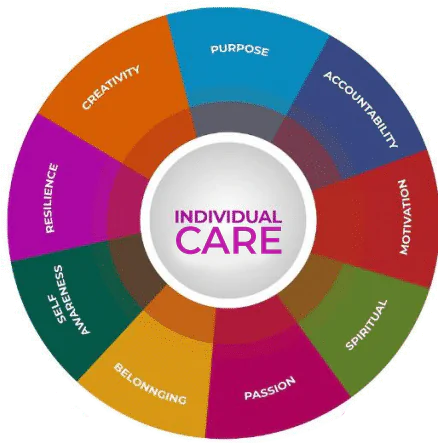Boosting Team Success Through Self-Awareness: Insights and Benefits
Self-awareness, according to Baird and Griffin (2006), is a cornerstone for achieving team success. When individuals understand their strengths, weaknesses, emotions, and the impact of their actions on others, this can create a significantly positive and productive work environment. Let’s explore how boosting self-esteem through interpersonal skills training can lead to professional success and better team dynamics, thus greatly impact the work culture and well-being of all team members.
What is Self-Awareness?
Self-awareness comes from recognizing one’s emotions, motivations, and behaviors. It’s about understanding how you affect others and how others perceive you. This introspective skill allows professionals to align their actions with their values and goals, ultimately leading to more effective teamwork and leadership. The alternative will be unpleasant for everyone concerned if we all do as we felt without considering the impact on others.

How Self-Esteem Impact Professional Success
High self-esteem is a byproduct of self-awareness. When individuals are aware of their capabilities and limitations, they’re better equipped to handle challenges and seek opportunities for growth. Here’s how self-esteem boosts professional success and workplace well-being:
- Confidence in Decision-Making: Self-aware individuals trust their judgment and make decisions more confidently, benefiting the entire team.
- Resilience: High self-esteem helps professionals bounce back from setbacks faster, thus impacting their productivity and the team’s morale.
- Communication: Those with healthy self-esteem communicate more responsibly, resulting in fewer misunderstandings and fostering collaboration and well-being.
- Leadership: Leaders with strong self-awareness inspire and motivate their teams, by creating good will and high employee engagement that drive success and innovation.

The Role of Interpersonal Skills Training
Interpersonal skills training is a critical component in enhancing self-awareness and self-esteem. By focusing on communication, empathy, conflict resolution, and emotional intelligence, such training helps individuals navigate social interactions more effectively. Here’s how it can benefit teams:
- Improved Communication: They get training on how to articulate their thoughts clearly and listen actively, and giving appropriate feedback. This will result in reducing conflicts and enhancing collaboration.
- Develop Empathy: They learn to listen to understand and respect diverse perspectives, learn to value others reality without judgement to foster a more inclusive and supportive team environment.
- Conflict Resolution: They develop skills in managing and resolving conflicts constructively to prevent minor issues from escalating and learn how to maintain a harmonious workplace.
- Emotional Intelligence: They learn to recognize and manage their emotions, as well as how to respond to others’ emotions, how to be better team members and to develop stronger professional relationships.

Steps to Enhance Self-Awareness
To cultivate self-awareness and self-esteem for your team members, consider these practical steps:
- Self-Reflection: Encourage team members to regularly reflect on their experiences, emotions, and behaviours. Ask them to reflect on how they may be perceived and if their actions relate to their desired perception.
- Feedback: Foster a culture of constructive feedback where colleagues can share observations and insights without fear of judgment. Ask each person to enlist the support of their colleagues to optimize how they are being perceived at work.
- Self-Awareness Practices: Incorporate self-awareness exercises to help individuals stay present and aware of their thoughts and feelings. Ask them to focus on their breath and to reflect on their thoughts. Invite them to listen to their words and reflect on how it could be perceived differently from their intent. Invite them to reconsider their words before they speak.
- Interpersonal Skills Training: Invest in training programs that focus on key interpersonal skills, boosting overall team performance.
Remember, self-awareness is a vital element for team success. By enhancing self-esteem through interpersonal skills training, individuals can contribute more effectively to their teams. As Baird and Griffin (2006) emphasized, understanding oneself is the foundation for building strong, successful teams. Encourage self-awareness and invest in interpersonal skills training to unlock your team’s full potential.
Something to Ponder
Are there self-esteem issues in your team dynamics?
Action Step
Schedule some interpersonal skills training for your team today.
To Your Wellness,
Joyce
